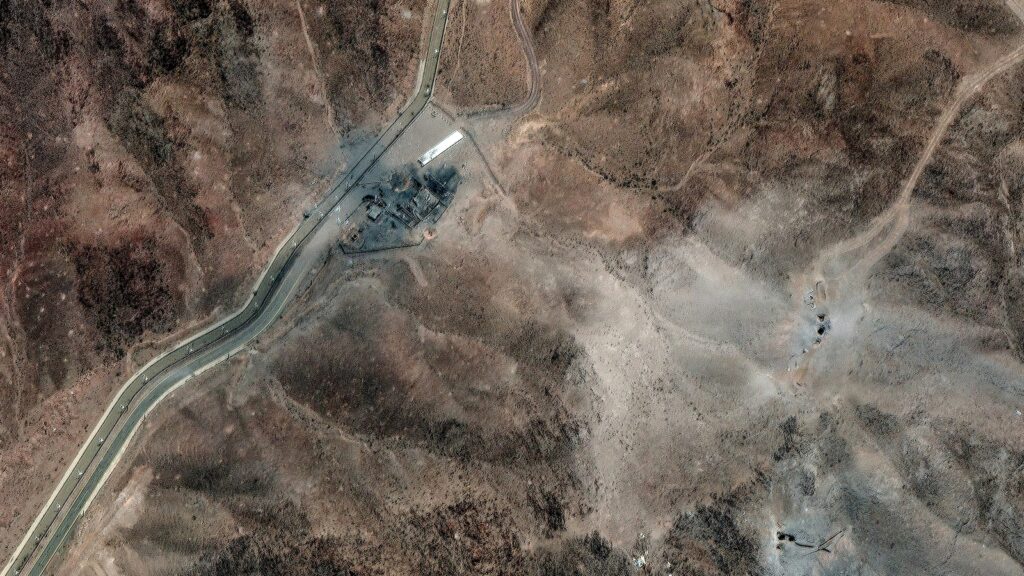
WASHINGTON — In the wake of recent American strikes on Iranian nuclear facilities, hackers aligned with Tehran have launched cyberattacks targeting U.S. banks, defense contractors, and oil industry companies. Despite the flurry of activity, these attacks have yet to cause significant disruption to critical infrastructure or the broader economy.
Experts warn, however, that the situation could escalate if the fragile ceasefire between Iran and Israel collapses, or if independent hacking groups sympathetic to Iran follow through on their threats to intensify digital warfare against the United States. Arnie Bellini, a tech entrepreneur and investor, suggests that the U.S. strikes might drive Iran, along with allies like Russia, China, and North Korea, to bolster their cyberwarfare capabilities.
Cyberwarfare: A Cost-Effective Weapon
Bellini highlights the cost-effectiveness of cyber operations compared to traditional military actions. “Hacking operations are much cheaper than bullets, planes, or nuclear arms,” he stated, emphasizing the vulnerability posed by America’s reliance on digital technology. “We just showed the world: You don’t want to mess with us kinetically. But we are wide open digitally. We are like Swiss cheese.”
Following the U.S. strikes, two pro-Palestinian hacking groups claimed responsibility for targeting over a dozen aviation firms, banks, and oil companies. These groups detailed their activities on the Telegram messaging service, urging other hackers to join their cause, according to SITE Intelligence Group researchers.
“We increase attacks from today,” posted Mysterious Team, one of the hacker groups, on Monday.
Government Response and Ongoing Threats
Federal authorities remain vigilant against further cyber intrusions. The Department of Homeland Security issued a bulletin on Sunday warning of heightened Iranian cyber threats, while the Cybersecurity and Infrastructure Security Agency (CISA) urged critical infrastructure operators to stay alert.
Although Iran’s technical capabilities lag behind those of China or Russia, it has long been recognized as a “chaos agent” in cyberspace, using attacks to steal secrets, make political statements, or intimidate adversaries. The potential for Iranian government-backed cyberattacks may wane if the ceasefire holds, but independent hacker groups could still retaliate on Iran’s behalf.
Trustwave security firm researchers have identified over 60 such groups, some with ties to military or intelligence agencies, others acting independently. These groups can inflict significant psychological and economic damage. For example, after Hamas’ attack on Israel in October 2023, hackers infiltrated an Israeli emergency alert app, falsely warning users of an incoming nuclear missile.
“It causes an immediate psychological impact,” said Ziv Mador, vice president of security research at Trustwave’s SpiderLabs.
Implications for U.S. Cybersecurity
While Iran’s cyber capabilities are limited, experts anticipate continued attempts to spy on foreign leaders, particularly to gauge U.S. and Israeli intentions. Last year, U.S. authorities charged three Iranian operatives with attempting to hack former President Donald Trump’s campaign, a strategy Jake Williams, a former NSA cybersecurity expert, believes Iran will persist with.
Calls to strengthen America’s digital defenses coincide with the Trump administration’s efforts to reduce government size, which have included cuts to some cybersecurity programs. CISA has placed election security staff on leave and reduced funding for state and local cybersecurity initiatives. Additionally, the CIA, NSA, and other intelligence agencies have experienced staffing reductions, and Trump recently dismissed Gen. Timothy Haugh, head of the NSA and Cyber Command.
The Future of Cyber Defense
The ongoing Israel-Iran conflict underscores the importance of investing in cybersecurity and cyber offense. Mador notes that Israel’s precise strikes on Iran, including those targeting nuclear scientists, required advanced cyberespionage capabilities.
Bellini argues that expanding America’s cyber defenses will necessitate investments in education and technical solutions to protect connected devices and networks. He recently contributed $40 million to establish a new cybersecurity center at the University of South Florida.
“There is a new arms race when it comes to cyberwar,” Bellini said. “It’s Wile E. Coyote vs. the Road Runner. It will go back and forth, and it will never end.”
As the digital battlefield evolves, the U.S. faces a critical challenge in safeguarding its infrastructure and maintaining its technological edge.







